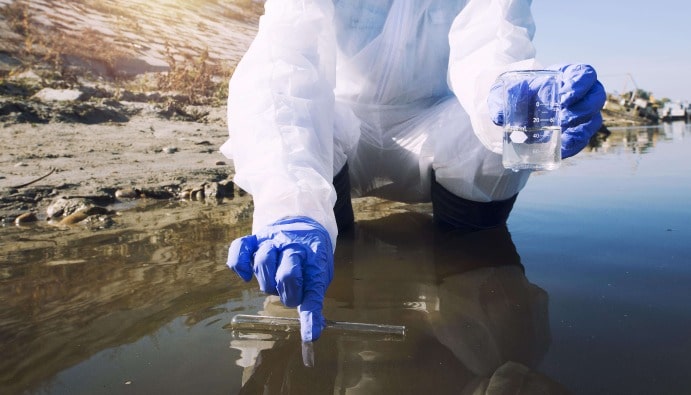Sampling in Wastewater: Methods and Application Guide
Sampling Procedures in Wastewater

Sampling Procedures in Wastewater
Domestic and drinking water or wastewater undergoes many physical, chemical and microbiological tests and analyzes. The purpose of these analyzes is to determine the suitability of water for human, animal and environment in the criteria suitable for the intended use of water. Another important point for the realization of these analyzes is the stage of taking samples.
There are many points to be considered in taking wastewater samples. First of all, wastewater samples should be stored in a way that will not affect the analyzes to be performed. Wastewater samples should be taken appropriately and adequately. There are different water sample sampling methods such as instant sampling and composite sampling.
In general, sampling principles can be listed as follows:
- Sampling methods and sampling frequency should be determined according to the purpose and the source from which the sample is taken.
- When a sample is taken at a certain time and from a certain place, it is accepted that this sample represents only that place and time.
- In facilities with sudden, special, variable or irregular discharges and processes, composite (mixed) samples representing the period in which such discharges occur should be prepared.
- Composite samples should not be used for the analysis of parameters whose properties and quantities change over time.
- If some preservatives are to be added during sampling, they should be added to the sample container at the beginning and the composite sample should be prepared in this container.
- For the witness sample, a sample of the same quality as the sample taken should be prepared and delivered to the relevant person under seal.
Importance of Sampling in Wastewater
Wastewater sampling is vital for determining the water's relationship with pollutants, assessing the efficiency of treatment plants and monitoring environmental impacts. Accurate sampling ensures that laboratory analyses are reliable, which helps to make the right decisions about environmental protection, regulatory compliance and water quality protection. Otherwise, incorrect or inaccurate samples may lead to misleading results and cause environmental damage.
Sampling Methods in Wastewater
There are various methods for sampling wastewater. Each method should be chosen according to the different water conditions, types of analysis and parameters to be tested. Here are the most commonly used sampling methods:
- Oral Sampling: Oral sampling is one of the most commonly used methods and is specifically used to assess the overall contaminants of wastewater at a specific point in time. In this method, the sample is taken from the pipes of the wastewater or close to the sewer network. When sampling, it is important to take the sample from both ends to ensure homogeneity of the sample.
- Sampling with Automatic Samplers: Automatic samplers are used especially in large-scale wastewater plants. These devices take samples at specific intervals or under specific conditions, preserve them and send them to laboratories for analysis. They are generally suitable for situations that require continuous sampling.
- Timed Sampling: In timed sampling, samples are taken according to a specific time interval. This method is particularly useful where contaminant concentrations may vary over time. For example, if the wastewater contains higher concentrations of pollutants at certain times, samples can be taken according to these time intervals.
- Volumetric Sampling: Volumetric sampling involves sampling a specific volume of wastewater. This method is used in large volume systems and is ideal for assessing the concentrations of pollutants within a given volume.
- Batch Sampling: Batch sampling consists of taking samples of wastewater at regular intervals. This method is often used to monitor constantly changing pollutant loads and concentrations.
Nanolab Laboratories Group continues to provide services within the scope of Sampling in Wastewater. Please also read our article on Sampling for Water Analysis.
Contact us for more information.
You can follow us on LinkedIn for up-to-date news and posts about our services.
Follow our Instagram account to be informed about our latest blog posts.

